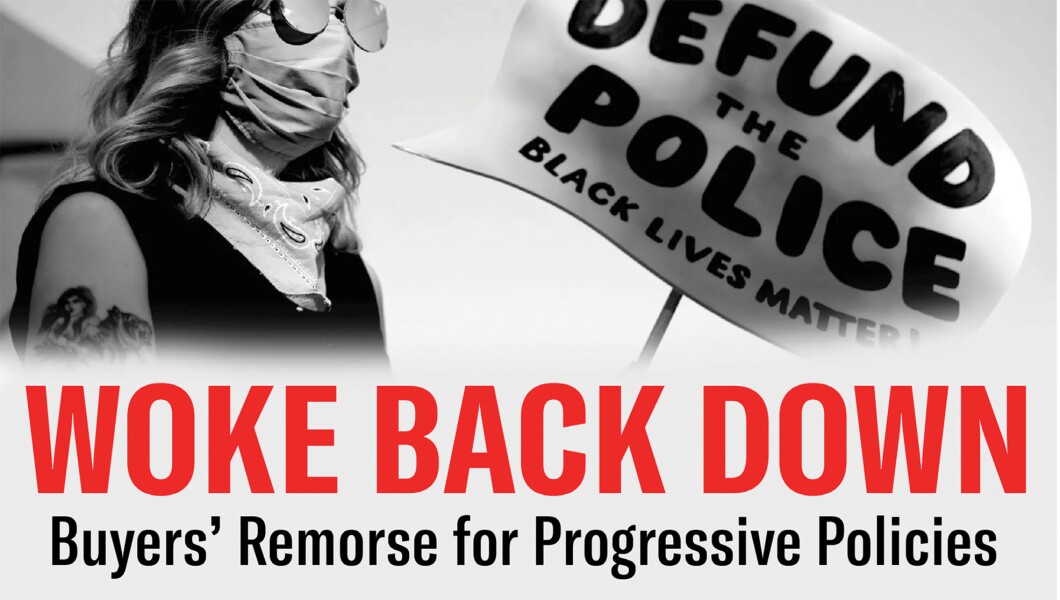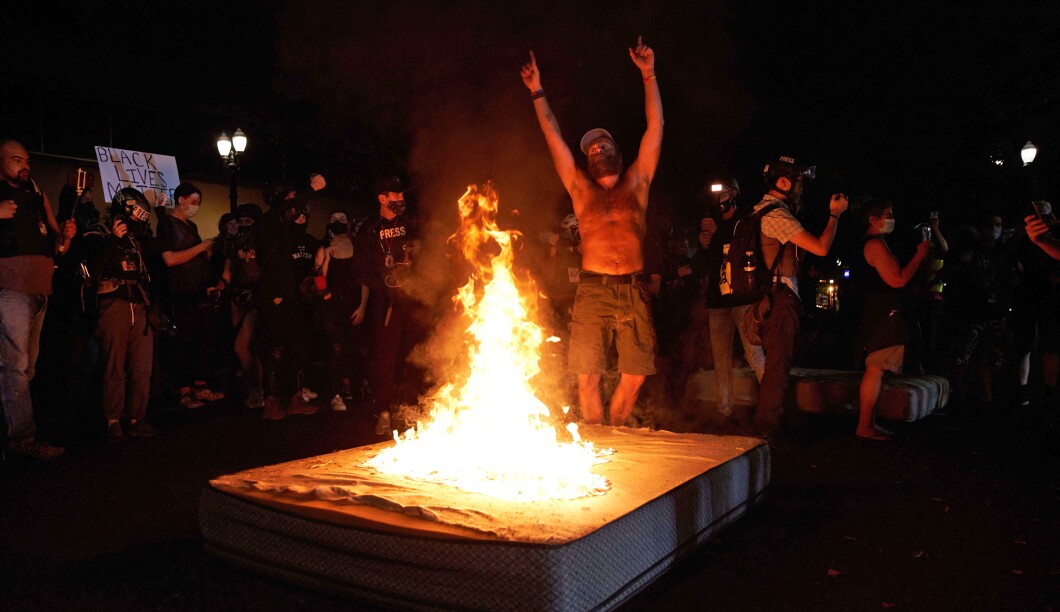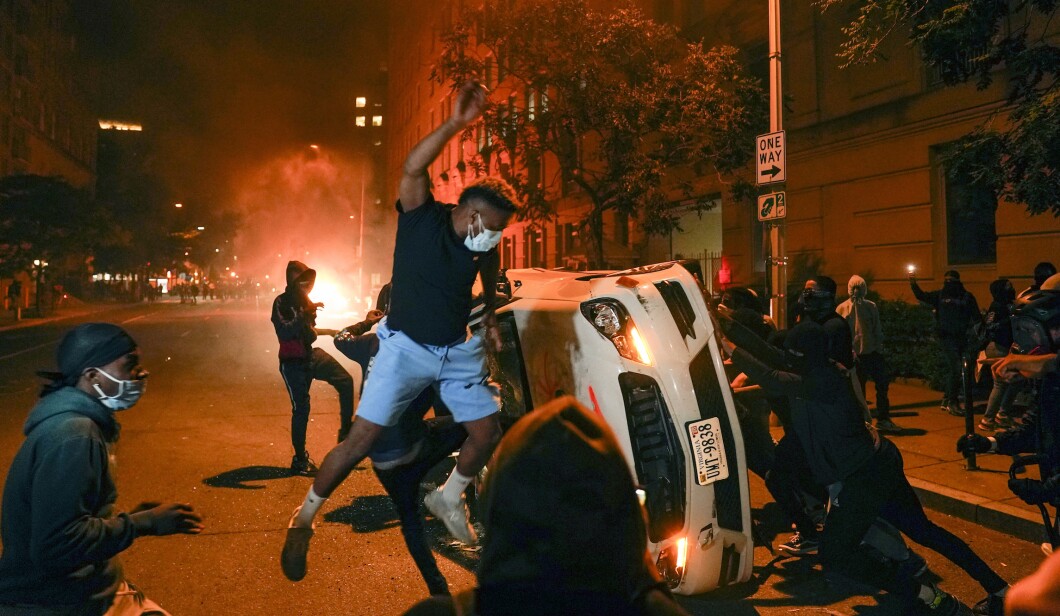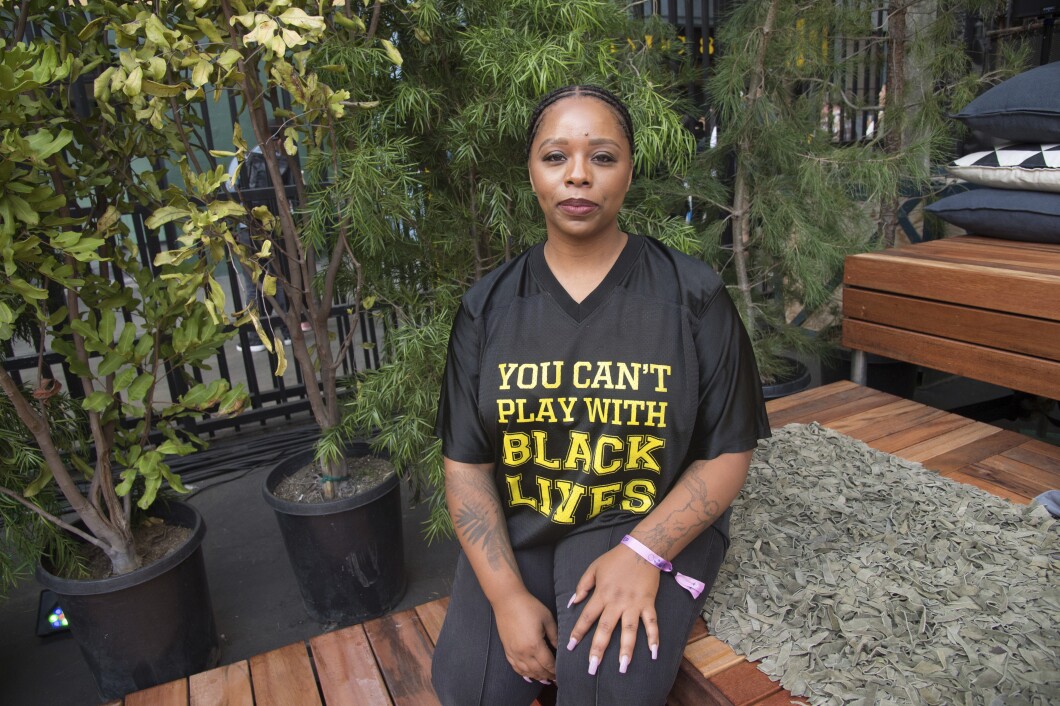
Three years after the murder of George Floyd sparked “racial justice” protests and riots, the national Black Lives Matter charity is wrestling to stay afloat amid major legal and financial pressure.
The Black Lives Matter Global Network Foundation launched in 2013 but gained prominence in 2020 as left-wing activists embraced the “defund the police” movement and contended Floyd’s death at the hands of since-convicted Minneapolis Police Department officer Derek Chauvin was racially motivated. But in the years following the violent unrest that rippled across the United States, the charity that was once the face of the BLM movement and pulled in a staggering $90 million has faced severe setbacks over what many tax experts have likened to an accounting and transparency nightmare.
STOCKS STAND TO SUFFER MASSIVE LOSSES IF DEBT DEAL ISN’T REACHED IN NEXT WEEK
“2020 was the year that many people first heard about BLM,” Jason Johnson, president of the Virginia-based Law Enforcement Legal Defense Fund, a pro-police group, told the Washington Examiner. “Many corporations and individuals gave large donations to BLM because they thought it was a legitimate way to contribute to the racial justice effort. I don’t know if I can legally call it a ‘scam,’ but if it’s not, it’s very close.”
The BLM charity saw a financial windfall after Floyd’s death, with 17 major corporations committing support of at least $100,000 each. The corporations, which include Amazon, Coca-Cola, Microsoft, and Airbnb, have been silent on BLM’s alleged self-dealing, the Washington Examiner reported.

But financial disclosures filed in 2022, which were obtained by the Washington Free Beacon, paint a stark image of how the BLM charity hemorrhaged its investment accounts during the recent tax period by almost $10 million and posted a deficit of $8.5 million. These creeping cash woes didn’t stop the foundation from steering millions of dollars to family members and friends of its co-founder, Patrisse Cullors, who resigned in May 2021 after legal scrutiny stemming from her real estate purchases.
Among those purchases was a swanky $6 million Los Angeles mansion where Cullors threw parties. The National Legal and Policy Center, a conservative watchdog, later alleged in an April 2022 IRS complaint that the BLM charity could face criminal or civil penalties for illegally using the mansion for the benefit of Cullors.
All in all, the foundation received just $9.3 million during its fiscal year ending in June 2022, marking an 88% slide from a year before, tax forms show. The BLM charity and its ex-board secretary, Shalomyah Bowers, were accused in a September 2022 lawsuit by an entity called BLM Grassroots of fraudulently siphoning off $10 million from donors.
The lawsuit alleged that Bowers led the BLM charity “into multiple investigations by the Internal Revenue Service and various state attorney generals, blazing a path of irreparable harm to BLM in less than eighteen months.” The state and federal inquiries cited came as a direct result of reporting from the Washington Examiner revealing that the foundation lacked shocking levels of transparency that raised ethical and legal red flags among lawyers and tax-exempt experts.
“They were ill-prepared to manage the money,” National Legal and Policy Center CEO Peter Flaherty told the Washington Examiner.
His group filed two complaints last year with the attorneys general of California and Washington that accused the foundation of illegal fundraising. Both states warned the BLM charity in January 2022 that it must stop taking money from residents until it provides information in connection to its 2020 finances, the Washington Examiner reported.

“Cullors seemed confused when the cash came in,” Flaherty added. “She called it ‘white guilt’ money. They never really used the money to develop a way to advance their mission. They sat on it and are fighting over it. It’s obvious that it’s self-dealing and self-enrichment.”
“Whether the IRS will have the political will to review or revoke their tax-exempt status, I don’t know,” the watchdog CEO added. “But it’s clear to me they violated their tax-exempt purpose.”
As far as its “purpose,” the charity said on 2022 tax forms filed in Florida that it is “working inside and outside of the system to heal the past, re-imagine the present, and invest in the future of Black Lives through policy change, investment in our communities, and commitment to arts and culture.”
‘People’s livelihoods completely gone’
The BLM-affiliated unrest of 2020 that began in Minneapolis would prove to make the movement a household name. The looting, vandalism, and arson resulted in up to $2 million in estimated property damage in 20 states from May 26 to June 8, according to Property Claim Services, a leading insurance tracker.
In turn, those weeks were dubbed the most expensive riots in U.S. history. They also proved to be financially fruitful for the BLM charity.
“The death of George Floyd sparked a flood of donations at a level typically only seen in response to large-scale national or international disasters like hurricanes and tsunamis,” Laurie Styron, executive director of CharityWatch, which rates nonprofit groups on their level of disclosure, told the Washington Examiner.
“The difference is that when the Red Cross or other large and established nonprofits receive tens of millions of dollars in donations very quickly, they are generally staffed with experienced and highly competent professionals who are operating within a functioning system of checks and balances and internal controls,” Styron added. “One person isn’t making unilateral decisions about how millions of dollars are spent.”

Over 1,500 businesses in Minneapolis, as well as in nearby St. Paul, were severely damaged and shuttered their doors forever, according to multiple reports. A 32-year-old man named Fornandous Henderson would later plead guilty in August 2020 to aiding and abetting arson after tossing Molotov cocktails inside a Minneapolis courthouse — landing him a six-year prison sentence.
“It’s almost hard to imagine it was that long ago,” Minnesota Senate Assistant Minority Leader Zach Duckworth, a Republican, told the Washington Examiner. “Many of the businesses that were impacted or damaged or burned never recovered. People’s livelihoods completely gone or erased.”
From Minnesota, the chaos moved outward. On May 29, the BLM charity circulated a “defund the police” petition calling for a “divestment [from] the police force” and “acknowledgment and accountability for our pain and injustice,” records show.
Ironically, like elsewhere around the country, many of the businesses that BLM protesters targeted in Georgia were minority-owned, according to multiple reports.
“Obviously, there needs to be a full-blown investigation,” Kelly Loeffler, a former Republican Georgia senator who co-owned the Atlanta Dream, a WNBA team, but sold her stake in 2021 after speaking out against BLM, told the Washington Examiner. “But I also want to make the point that it was clear from the start, based on their manifesto, that this organization was a radical front group designed to line the pockets of their founders.”

Riots later broke out in Philadelphia on May 30, for instance, and lasted for more than three weeks. That day, one sneaker store hit amid the looting was Philadelphia Runner, which opened its doors in 2004.
Ross Martinson, a co-owner of Philadelphia Runner, told the Washington Examiner that his downtown store had only just opened up again a few days before the unrest due to COVID-19 policies in the city.
“I definitely felt like, ‘Why isn’t the police doing anything?'” Martinson asked. “It certainly felt like they were told to stand down. It’s still tough to think about today. Like, who is responsible for protecting, if you’re a small-business owner? I feel like they could have done more.”
In the years after the unrest, Republican members of Congress and conservative advocacy groups have demanded investigations into BLM’s role in the violence that took place. In 2020, there were almost 600 violent riots, which resulted in more than 2,000 police officers being injured, according to the Major Cities Chiefs Association and National Police Association.
“Keep going,” the BLM charity tweeted on July 5, the day after police in Portland, Oregon, reportedly arrested over a dozen rioters, including one illegally carrying a gun. “Keep changing the conversation, keep changing the world. #blacklivesmatter Black Lives Matter May Be the Largest Movement in U.S. History.”
More than a month earlier, in Philadelphia, on May 31, 2020, Martinson would arrive at his store in the morning to assess the damage from the night earlier. Glass was shattered inside and on the street, he told the Washington Examiner.
There were still people inside “picking through” his inventory. When he told them to leave, one made a remark that has stuck with him to this day.
CLICK HERE TO READ MORE FROM THE WASHINGTON EXAMINER
“Don’t you have insurance?” the person asked.
The Black Lives Matter Global Network Foundation did not return a request for comment.





